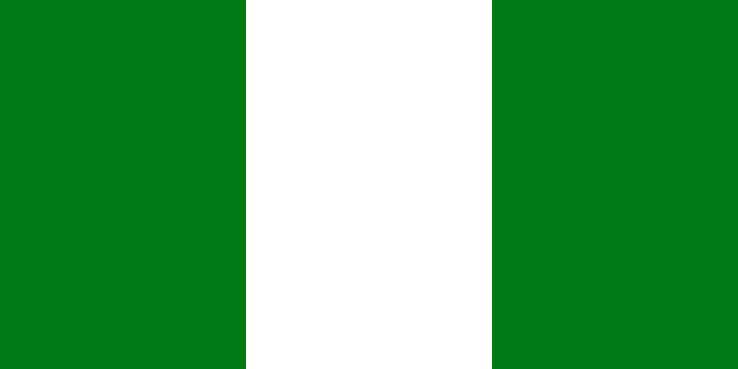Orange holding off Nigeria investment until mobile money regulatory tweak

A Central Bank regulation barring non-financial institutions from providing financial services in Nigeria is all that stands in the way of Orange SA from rolling out mobile banking operations in Africa’s most populous nation, according to two persons familiar with the matter.
The French telecommunications group did not immediately respond to an email seeking comment. There is a separate report by Bloomberg that Orange, which started offering banking services in its home market last year, is partnering Ivory Coast’s Groupe NSIA to start banking operations in Abidjan and Senegal, in a move expected to expand over time into neighboring West African countries. Orange targets 400 million euros ($466 million) in revenues in 2018 from mobile financial services across all its markets, the company said last November.
“Orange is ready to invest billions of dollars in Nigeria, but the framework has to be right for them to come in,” one of the sources, who did not want to be named, told Business Day.
“It’s not just Orange who is looking to come in, some other companies, foreign and local are positioning to come as soon as the regulatory environment permits,” another source said, declining to name the companies.
The current regulatory environment, as guided by the Banks and Other Financial Institutions Act (BOFIA), makes no provision for non-financial institutions to provide financial services.
BusinessDay, however, understands that the central bank is weighing options to tweak the law, worried by falling financial inclusion rates in the country.
The percentage of Nigerians with access to financial services fell to 40 percent in 2017, down from 44 percent in 2014, according to the World Bank’s Global Findex report, moving Nigeria further away from a target of 80 percent by 2020.
That compares poorly to the inclusion rates in other African countries; 84 percent in Kenya, 78 percent in Uganda and 58 percent in Ghana. These countries have particularly been helped by a rapidly growing mobile money market. Nigeria does have a mobile money market, but one that is exclusively bank-led, as opposed to the model in Ghana as well as in Kenya and Uganda.
That has meant the Nigerian mobile money market is not growing at the same pace as neighboring African nations.
Ghana’s ability to creatively tweak its regulation to allow telecommunication companies double as mobile money providers, particularly holds lessons for Nigeria, economists say.
Accra’s change of tack means non-bank entities can be licensed as financial services providers and are supervised by the Bank of Ghana in an arrangement that once shut them out of the mobile money market and gave exclusive right to commercial banks to play in that space.
In the new arrangement, Ghana’s mobile money operators from MTN to Airtel and Tigo are required to set up subsidiaries that would engage in the business of mobile money, independent of their core operations.
That decision resulted in a 73 percent increase in registered mobile money customers in just one year, according to World Bank data, and has helped lift financial inclusion rates in Ghana to 58 percent in 2017 from 41 percent in 2014.
“From our interviews with Bank of Ghana staff, there was much resistance by commercial banks to the development of mobile money banking by Telcos but the regulator overcame that through a form of legal creativity,” said Obadiah Mailafia, a former deputy governor of the Nigerian central bank who recently did a survey on financial inclusion in Ghana.
“The BOG allowed the Telcos to float independent companies in which they were major shareholders. The companies became legal entities independent of the Telcos, able to do essentially banking business while not being commercial banks in the full sense of the word,” Mailafia said in an interview with Business Day.
By 2016, there were six main digital financial services providers across Ghana- MTN, Tigo, Airtel, Vodafone, Fidelity bank and e-Zwich.
MTN, Tigo, Airtel and Vodafone were all mobile network operators offering mobile money services throughout Ghana. In addition to these DFS-oriented financial services providers, there are more than 27 commercial banks, some 60 non-bank financial institutions, 138 rural and community banks, 503 licensed MFIs and hundreds of licensed individual susu collectors that have become active across the country.
“It is safe to say that Nigeria is playing catch-up when it comes to achieving inclusion and must look to learn from success stories like Ghana and Kenya if we are to achieve our goal of 80% inclusion by 2020,” said Gbenga Adebayo, Chairman of the Association of Licensed Telecom Operators of Nigeria (ALTON) centered on Financial Inclusion.
Another influential decision taken by the Bank of Ghana in the process of tweaking its regulatory environment to leverage mobile money, “was the decision to allow interest to be accrued on mobile money deposits,” Adebayo said.
Mobile banking is so popular in Accra that the value of deposits and withdrawals by Ghanaians using mobile phones for banking almost doubled in 2017, according data published by the central bank.
The value of mobile transactions rose to 155.8 billion cedis ($34.6 billion) last year from 78.5 billion cedis in 2016, according to the Bank of Ghana said. The volume of deposits and withdrawals rose another 78 percent to about 982 million.
Some argue that Nigeria’s resistance to allowing the telcos play a more active role in the mobile money space must give way to move the needle on financial inclusion.
“If we analyse the number of bank branches in Nigeria using the World Bank’s financial access survey, we see a high of 6.5 branches per 100,000 adults in 2010, falling to under 5.5 branches per 100,000 adults in 2016. It is clear that traditional banking is not the answer to the financial inclusion conundrum, a fact now acknowledged by the banks themselves,” said Adebayo.
SOURCE:BUSINESSDAY
 Africas leading resource for digital financial services
Africas leading resource for digital financial services


comments